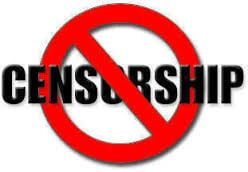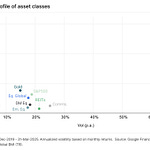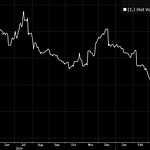To investors,
It was reported late last week that the United States would be confiscating billions of dollars from the central bank reserves of Afghanistan. This seemed a little weird at first, but I didn’t want to jump to conclusions since governments are always doing counter-intuitive or seemingly insane things.
After digging into the story, it appears that this is a highly unusual decision that could have significant impact on finance, geopolitics, and technology moving forward. Here is what is happening:
Afghanistan’s central bank reserves have been kept in various US-based financial institutions.
There is approximately $7 billion of total assets that belong to the Afghan central bank, but are held in the US.
President Biden signed an Executive Order compelling all US financial institutions to “transfer this property into a consolidated account held at the Federal Reserve Bank of New York.”
Approximately $3.5 billion of the $7 billion in assets will be routed back to Afghanistan with the hopes of helping the Afghan citizens.
The remaining roughly $3.5 billion assets will be held by the US government and earmarked for victims of the 9/11 terrorist attack.
Now it is important to call out that this is a highly complex situation. But it is also a highly irregular situation as well. The central bank of Afghanistan was holding billions of dollars in US-based financial institutions and had no sovereignty over those funds. This wouldn’t seem overly weird for a central bank except the US had invaded the country and was actively occupying it for the better part of 20 years.
Second, the use of an Executive Order to compel US-based financial institutions to turn over client assets to the Federal Reserve is as outrageous as it sounds. The Federal Reserve is allegedly an independent, private organization so it is noteworthy that the President and his administration is forcing one private organization to allow another private organization to confiscate client assets.
Third, the $7 billion of Afghan central bank assets are the property of Afghanistan. Any attempt by the United States, the President, or the Federal Reserve to prevent the country of Afghanistan, and it’s citizens, from accessing or retrieving their property is equivalent to theft. Regardless of the reasoning or the moral appeal, the United States is confiscating billions of dollars of assets from a country that we are no longer at war with, and a country that we are reportedly trying to help become independent.
Fourth, the United States is conducting this highly suspicious activity at the same time that it is becoming clear that the Afghan people are suffering immensely. In the White House press release related to the Executive Order, these are the facts outlined to highlight the dire situation on the ground:
Even prior to the events of last August, Afghanistan’s economy was on the brink. Afghanistan faced poverty rates above 50 percent. International donor grants financed about 75 percent of public expenditures and 50 percent of the government’s budget. A two-year long drought had reduced many crops to 40 percent of their usual yields, and Afghanistan had one of the least developed financial systems in the world—with just 10-20% of adults holding bank accounts. Rampant corruption crippled sectors that should have been profitable.
The Taliban’s forced takeover made the already frail economic situation worse. The IMF estimates that Afghanistan faces an economic contraction of 30%, and many of the senior officials and technical experts needed to provide sound economic management have fled the country as a result of the Taliban’s actions.
These problems reflect longstanding, structural issues that predated the events of August 2021 and have worsened due to uncertainty and perceived risk surrounding the Taliban’s capacity to run the economy. This includes its ability to implement anti-money laundering measures and measures to counter the financing of terrorism.
So we know the citizens of Afghanistan are struggling and the current administration has still decided to withhold potential aid, and the property of those citizens, because of political motivations. It is really crazy to think about the nuances of this entire situation.
So why am I writing about this?
The idea of financial censorship is becoming more pervasive. We have the US confiscating Afghan central bank assets. We have the US threatening Russia with removal from the SWIFT payment system depending on what actions Russia pursues in Ukraine. We have the Canadian government pressuring technology companies and financial institutions to confiscate any funds that are being sent to the truckers’ Freedom Convoy protest.
Each of these situations is different, but they are all a form of financial censorship. The more aggressive that governments become with financial censorship, whether towards each other or towards their own citizens, the more popular that bitcoin becomes in the eyes of those on the internet. Every attempt at financial censorship is a marketing campaign for bitcoin.
Bitcoin is censorship-resistant money. No one can prevent you from sending it to anyone else. No one can confiscate it from you without your permission. No one can debase the currency.
Bitcoin is freedom technology. It gives a user, from individuals to organizations to nation states, the freedom to choose how to use the digital currency. You can hold it. You can spend it. You can send it to someone. Whatever you want to do, you’re allowed to do it. No government, company, or individual can impose their views or desires on you.
If the Afghan central bank has sovereignty over their assets, the US couldn’t confiscate them easily. If the Freedom Convoy raised money through a censorship resistant currency, no one could have taken those funds from them.
That is where the world is headed. Sovereignty. Censorship-resistance. Decentralization. Individual rights. Slowly, but surely.
Bitcoin is inevitable. It returns the world back to sound money and to individual sovereignty. Those may seem like crazy ideas on the surface, but we are watching multiple examples play out that prove why it is so important.
Have a great day today. I’ll talk to everyone tomorrow.
-Pomp
If you are not a subscriber, join 215,000 other investors who read my personal opinion on finance, technology, and bitcoin each morning.
SPONSORED: Bitwise is one of the largest and fastest-growing crypto asset managers. As of December 31, 2021, the company managed over $1.3 billion across an expanding suite of investment solutions, which include the world's largest crypto index fund and other innovative products spanning Bitcoin, Ethereum, DeFi, and crypto equities. Whether you’re an individual, advisor, or institution, Bitwise provides intelligent access to crypto with your unique circumstances in mind. Visit www.bitwiseinvestments.com to learn more.
Certain of the Bitwise investment products may be subject to the extreme risks associated with investing in crypto assets. Visit www.bitwiseinvestments.com/disclosures/ to learn more.
LISTEN TO THIS EPISODE OF THE POMP PODCAST HERE
Rishi Khanna is the CEO of Stocktwits.
In this conversation, we discuss Stocktwits' business model, social investing, NFTs, Cryptocurrency and the vertical integration of trading infrastructure and the social audience that Stocktwits has.
LISTEN TO THIS EPISODE OF THE POMP PODCAST HERE
Podcast Sponsors
These companies make the podcast possible, so go check them out and thank them for their support!
Bitcoin 2022 is the largest Bitcoin event in the world that takes place 4/6 - 4/9 in Miami Beach. Click HERE to learn more and use promo code POMP for 10% off.
Fundrise is largest direct-to-investor real estate investment platform. Go to Fundrise.com/Pomp today and get $10 when you place your first investment.
Mode allows you to buy, earn and grow Bitcoin, all in one app. Download Mode on the App Store and Google Play. Only available in the UK.
Unstoppable Domains’ 10 NFT domain endings are now fully integrated with Trust Wallet. Claim your Unstoppable Domain here today.
Brave Wallet is the first secure crypto wallet built natively in a web3 crypto browser. Download the Brave privacy browser at brave.com/Pomp today.
Abra is an all-in-one secure app that allows you to trade over 110 cryptocurrencies. Download Abra today and get $15 in free crypto once you fund your account.
FTX US is the safe, regulated way to buy digital assets. Trade crypto with up to 85% lower fees than top competitors by signing up at FTX.US today.
Compass Mining is the world's first online marketplace for bitcoin mining hardware and hosting. Visit compassmining.io to start mining bitcoin today!
Choice is rebuilding the way bitcoiners approach retirement by making it possible to invest in digital assets inside your IRA. Visit choiceapp.io/pomp
BlockFi provides financial products for crypto investors. To start earning today visit: http://www.blockfi.com/Pomp
Circle Yield offers qualified businesses superior returns on USDC holdings for terms of up to 12 months. Visit circle.com/pomp today; terms apply.
LMAX Digital is the market-leading solution for institutional crypto trading & custodial services. Learn more at LMAXdigital.com/pomp
Okcoin is the first licensed exchange to bring new cryptos to market. To get started, and go to okcoin.com/pomp
Exodus is the world’s leading desktop, mobile, and hardware crypto wallets, with over 150 assets. Founded in 2015 to empower people to control their wealth. Visithttp://exodus.com/pomp today.
You are receiving The Pomp Letter because you either signed up or you attended one of the events that I spoke at. Feel free to unsubscribe if you aren’t finding this valuable. Nothing in this email is intended to serve as financial advice. Do your own research.














Share this post